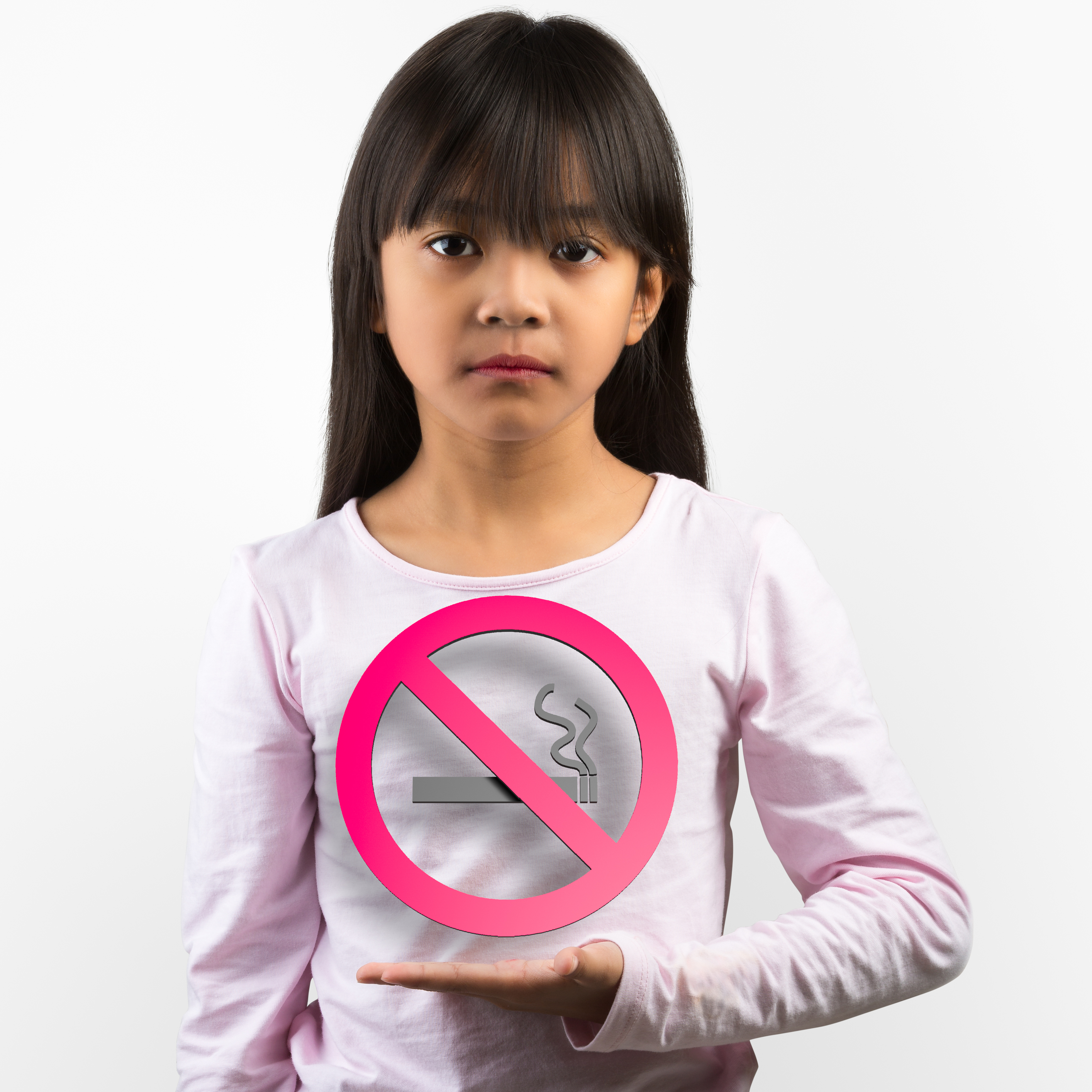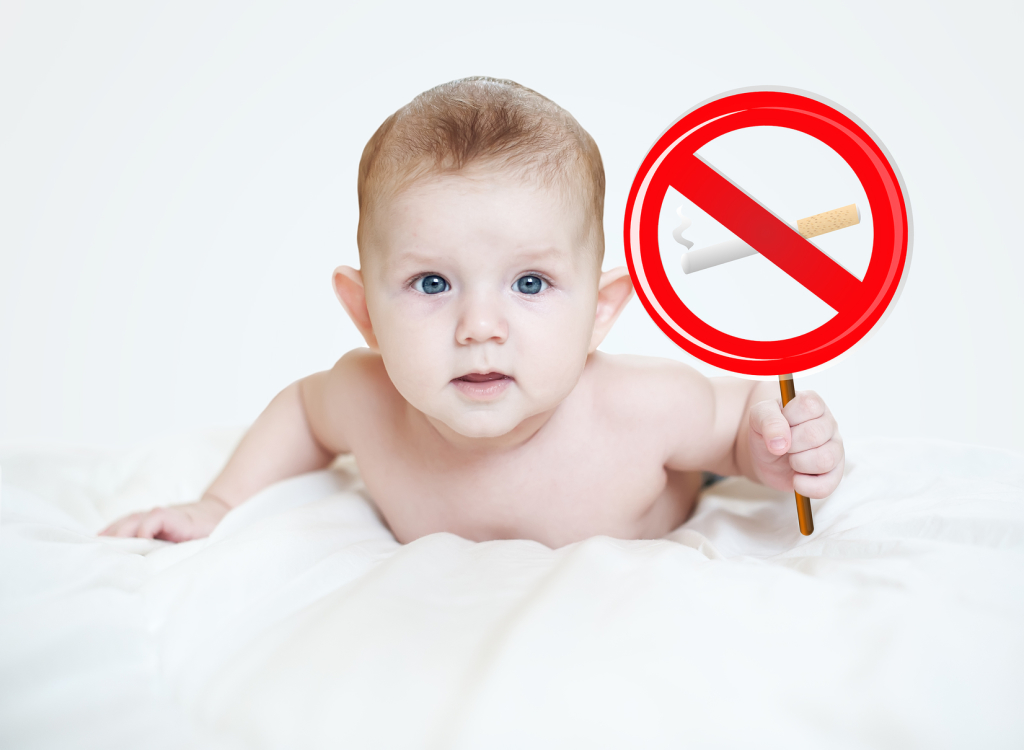Smoking is bad – we all know it. Lighting up that cigarette or beedi every day shaves off years off our lives with every puff. Smoking causes heart disease, cancer, lung disease, impotence and a long list of illnesses that is too much to fit here.
But it gets worse. Your smoking is affecting your kids.
The bad effects
Smoking when pregnant or smoking around loved ones is slowly killing them. Yes – while that does sound dramatic, lets take a look at some of the scientific studies that back this fact.
Smoking when pregnant
 Smoking when pregnant has been shown from clinical studies to increase the risk of the infant developing bronchial asthma. The chances of developing allergies also increases due to this. Recent research conducted in Sweden has not only confirmed this fact; it now appears that the harmful effects can extend all the way to teen years.
Smoking when pregnant has been shown from clinical studies to increase the risk of the infant developing bronchial asthma. The chances of developing allergies also increases due to this. Recent research conducted in Sweden has not only confirmed this fact; it now appears that the harmful effects can extend all the way to teen years.
What is of primary concern is that smoking when pregnant exposes the growing fetus to harmful toxins that increase the chance of the child suffering from asthma till the age of 16 by 45%!! The risk extends to infants and children who are exposed to smoke at home (like from a family member smoking inside the house). Passive smoking like this increases the likelihood of the child (or adolescent) developing asthma by 23%.
Sudden infant death syndrome (SIDS) is a clinical condition when infants die suddenly in their sleep. It is sometimes called a ‘cot death’, and many a time the cause remains unexplained. However, a lot of research is ongoing in this field of pediatrics. So far, it appears that smoking during pregnancy or even after the baby is born increases the risk of SIDS. This risk increases further if the father also smokes at home.
Effects on the child’s heart
Passive smoke can affect people around at home, and children are no exception. A recent study published in the European Heart Journal showed that exposure to parental smoking in childhood or adolescence increased the thickness of the inner lining of the arteries in the neck. Research has demonstrated that an increase in this thickness is directly related to the chances of developing heart disease in the future. Quite alarmingly, this effect persists up to 25 years later. Clearly this is not good.
Effect on the child’s ears
Inner ear infections are more common in children whose parent(s) smoke. The smoke irritates the tube that maintains the pressure within the inner ear (called Eustachian tube), blocking it. This increases the pressure within the ear, increasing the chance of developing infections and accumulation of fluid. This could be corrected through medicines, but some children may require surgery.
There is also some evidence that second hand smoke increases the chance of a child losing their hearing, though this effect seems to be only miniscule. But it could be a problem if the child’s future career depends on their hearing (like a doctor or musician).
Effect on the child’s lungs
Passive smoking increases the chances of children developing lung infections such as pneumonia and bronchitis. In those children who already have asthma, attacks can get a lot more frequent and considerably worse.
Effect on the child’s brain and memory
Inhaling smoke can increase a chance of the child developing meningitis. Clinical studies have shown that it also increases the chance of the child developing attention deficit hyperactivity disorder – a personality disorder where children are overly active and crave for attention all the time. There is also a chance that the child will develop some degree of intellectual impairment, meaning their academic performance in school will worsen.
Your child is likely to smoke
Detailed clinical studies have shown that the nicotine that is present in passive cigarette smoke can bind to the nicotine receptors in the brain, stimulating them just like is seen in a regular smoker. As these centers are stimulated, they will need constant attention. When a child becomes a teenager, due to constant exposure to smoke at home, their brains will be ‘begging’ for a cigarette to keep these receptors stimulated. This would make them vulnerable and would prompt them to take up smoking themselves.
They may lose a parent
Parent smoking places them at a higher risk of heart disease at an early age, along with a higher chance of developing cancer. There is no way of predicting when this might happen, but bear this in mind – your child may lose a parent.
An alternate strategy – The right solution?
As a family member living with someone who smokes, you will know all too well how hard it is for a smoker to quit smoking completely. Years of smoking becomes an addiction, and despite awareness of how bad it can be for one’s health, smokers continue to smoke regularly.
It is probably time to start adopting an alternate strategy. Instead of telling smokers how bad smoking is for them, tell them how bad it is for their children and other family members.
Taking the right steps is of utmost importance. Children can be protected if no one smokes in the house. If you really have to smoke, do it at a fair distance from a house and nowhere in the vicinity.
Smoking kills – not just the one smoking but also the children inhaling the smoke. Isn’t it time you packed in the habit?

- CT Coronary Calcium Score: A Guide for Patients - January 7, 2024
- Gastric Antral Vascular Ectasia (GAVE) – Causes, Diagnosis, and Treatment - August 5, 2023
- Understanding Xanthelasma: Causes, Symptoms, and Treatment Options - June 28, 2023

